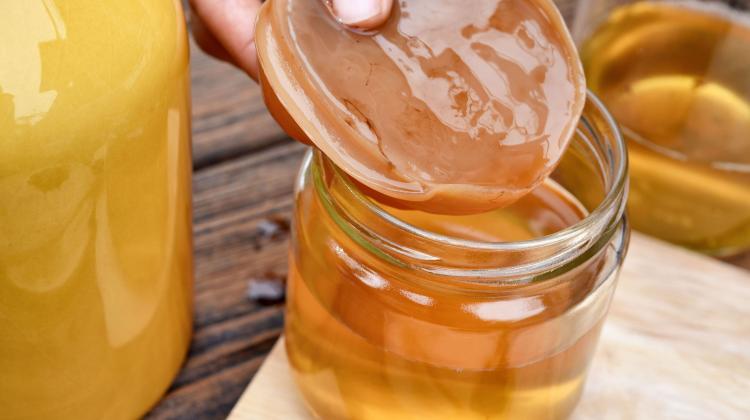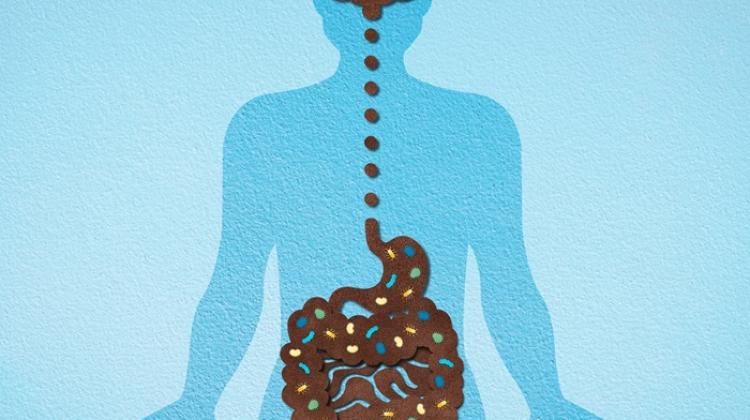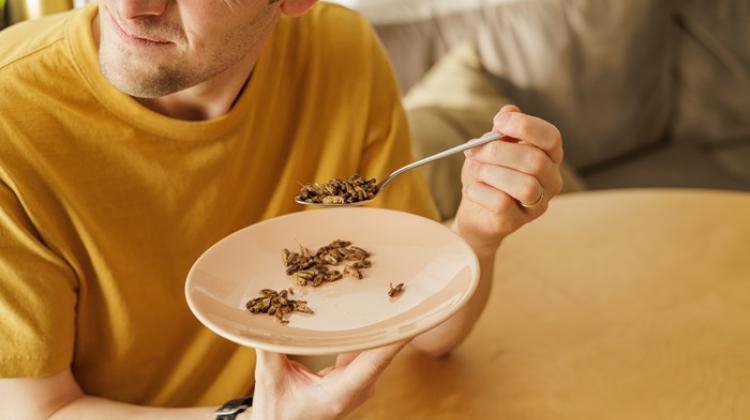Kombucha can be source of fluoride in diet but be careful, says expert
 Credit: Adobe Stock
Credit: Adobe Stock
Kombucha - a fermented beverage based on tea - can be one of the sources of fluoride in the diet. For this reason, you have to be very careful about how much of it you drink. Excessive consumption can have serious consequences.
Dr. Karolina Jakubczyk from the Department of Human Nutrition and Metabolomics of the Pomeranian Medical University of Szczecin, author of the popular science blog Fitoscience (https://fitoscience.pl/) has been involved in the research of the content of fluoride compounds in various foods for years.
She said: “We not only check on cellular cultures whether fluoride is actually toxic to the body, but also how it looks in the case of foods that contain it, because such research in science, not only Polish one, is scarce.”
In their latest study published in Biological Trace Element Research (https://doi.org/10.1007/s12011-020-02445-9), Dr. Jakubczyk and her team focused on kombucha.
Numerous studies confirmed health-promoting properties of the beverage. It has been proven that it has antimicrobial, antioxidant and anti-diabetic properties, lowers cholesterol, strengthens the immune system and stimulates liver function. It is also a good source of important minerals, some vitamins (E, K, B) and amino acids. In addition, during fermentation, various pro-health compounds form, including polyphonols, catechins and flavonoids.
However, very few studies focus on the content of fluoride compounds in kombucha. Meanwhile, as the experiments of the team from the Pomeranian Medical University show, this beverage is one of the main sources of this element in the diet and its excessive consumption can have serious consequences.
CAREFUL WITH FLUORINE
Kombucha is a fermented tea beverage produced using bacterial and yeast cultures (in the form of the SCOBY). Yeast initiates the fermentation processes responsible for the formation of valuable bioactive ingredients.
Kombucha is most often made from black tea and sugar, although it can also be obtained from other teas: green, red or white. Depending on the type of tea and its place of origin, the finished product can have different properties
Dr. Jakubczyk said: “Our goal was to study the composition of kombucha: its pH, antioxidant potential, alcohol content, organic acids and microelements.
“Earlier, we dealt with tea analysis in terms of fluoride content, so we expected certain types of tea leaves and brewing conditions to be conducive to a higher or lower fluoride content. We were interested in how fermentation would affect all these parameters.
“It turned out that kombucha is a serious source of fluoride in our diet. Water itself and all products prepared on its basis contain fluoride. That is why we must be careful about how many additional sources of this element we use. Both the amount of tea and kombucha has to be controlled, because their excess can be harmful.
“If someone drinks a 330 ml bottle of kombucha every day, then the fluoride concentration in their body will be abnormally high. I think it should be limited to about 100 ml a day.
“I recommend drinking it from a glass, a bit like wine, and introduce it to the diet gradually, slowly. The more that Poles consume very large amounts of tea, in some cases over 1.5 litres per day, which is already a significant fluoride injection.”
She added: “And the raw material itself, the tea leaves determine the amount of fluoride. Kombucha and tea have similar content, so if you have a lot of one of them in the diet, be careful with the other.
“Better quality leaves have slightly less fluoride, just like younger leaves, collected earlier. This is due to the fact that the longer the contact with the ground, the greater, even several times, the content of fluoride in the plant. “Teas from non-volcanic regions are also slightly poorer in this element, which we have proven in our previous research on yerba mate. It is similar in the case of leaves grown in industrialized, more polluted countries.”
As for the type of tea - black, red, white and green - the study shows that the safest for health is a kombucha based on white and red tea. Black tea kombucha has the highest content, green tea kombucha is in the middle.
THE DOSE MAKES POISON
In Poland, the maximum permissible dose of fluoride is 4 mg per day for men and 3 mg per women.
Dr. Jakubczyk said: “This is unfortunately dangerously easy to achieve. One litre of tea provides a quarter of the recommended level. When we add clean water we drink, and all the food we prepare with it, i.e. rice, pasta, soups, we already have a full dose. And remember that some amounts of fluoride also penetrate into the body through the skin after contact with water and from dental care products.”
The researcher explained that for this reason it is difficult to determine the actual dose that we take every day. There is a lot of scientific evidence that even low, but chronically taken doses of fluoride have negative effects on the body.
She said: “Fluoride causes oxidative stress, changes the course of various biochemical reactions, blocks the effects of many enzymes, competes with other elements.
“Changes at the cellular level, unfortunately unnoticeable for us, begin to slowly occur. So it is best to check the doses taken with individual products and be aware of the risk.
“In this case, the statement becomes extremely accurate that everything is poison and nothing is poison, because the dose makes poison.”
DIETITIANS CLASH WITH DENTISTS
She continued: “There is no doubt that fluoride works very well on teeth and other hard tissues, which is why it is recommended by dentists. At the same time, it is known to negatively affect many processes in our body.
“So you need to strike a balance: provide yourself with the amounts of fluoride that will protect your enamel, but will not be toxic.
Doses in dental care products are about a thousand times higher than in kombucha. But remember that in the case of the former we are only talking about contact action. So if you do not swallow toothpaste or mouthwash, you effectively spit or rinse them, you will not hurt yourself; there will be few systemic changes. Dental care products, despite huge doses of fluoride, cannot be compared to foods, because it is a completely different way of administration and absorption”
KOMBUCHA IS FUNCTIONAL FOOD
However, she added that it is not worth quitting kombucha completely. She said: “It is a very good source of antioxidants. It contains vitamin C and in a fairly significant amount: one cup covers 50-100 percent of daily demand for this ingredient. It is also rich in polyphenols that have a positive effect on people with many diseases, including civilization diseases. It has organic acids, including glucuronic acid, which detoxifies the body.”
Recent studies on mice have shown that kombucha also has a positive effect on glycemic index, which is why it is beneficial for patients with type 2 diabetes. It has been proven that after drinking it, short-chain fatty acids (SCFA) are overproduced in the intestines and modify the intestinal microbiome in a beneficial way.
Dr. Jakubczyk said: “In my opinion, kombucha can be considered a functional food, one that has a health-promoting effect. But, as always with drugs, active substances and functional foods, there are some restrictions and certain excluded groups. It's good to be aware of this.”
She added: “Kombucha is a living organism in which microorganisms are constantly conducting a fermentation process. Therefore, it requires special storage conditions. The situation is different if the manufacturer pasteurised the beverage. Then it loses most of its properties and becomes an ordinary drink, not a functional food. It can then be stored outside the fridge, but it is a product with a much inferior quality.”
PAP - Science in Poland, Katarzyna Czechowicz
kap/ agt/
tr. RL
Przed dodaniem komentarza prosimy o zapoznanie z Regulaminem forum serwisu Nauka w Polsce.


















